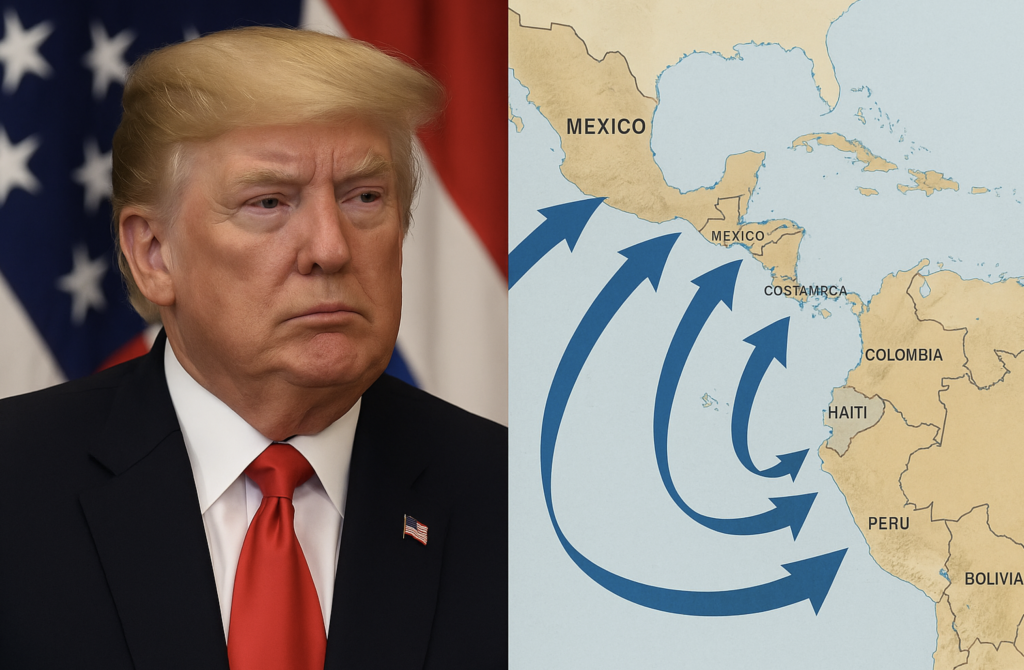
The latest wave of immigration policies introduced by President Donald Trump, are rippling through the U.S. economy—particularly in the remittance sector. Advocates and analysts report a significant decline in remittance flows from the United States to Latin America, just months after Trump’s policy proposals began to take shape.
According to early estimates from the Inter-American Dialogue and several major remittance providers, remittance flows to countries like Mexico, El Salvador, Guatemala, and Honduras have dropped by 7–10% in the first quarter of 2025 compared to the same period last year.
The decline coincides with a renewed push for stricter immigration enforcement, expanded deportation operations, and the proposed end of key protections like Temporary Protected Status (TPS) for certain nationalities. The result: increased fear among undocumented immigrants, many of whom are the main contributors to remittance flows.
“People are scared. Some have stopped working or are moving away from traditional employment channels,” says Laura Peña, a migration policy analyst. “When income becomes unstable, the first thing to go is the money sent back home.”
Remittances are a financial lifeline for millions of families in Latin America and the Caribbean, supporting everything from basic household expenses to education and healthcare. A sustained drop could have far-reaching consequences, both economically and socially, in recipient countries.
Meanwhile, money transfer companies report fewer transactions and changing customer behavior. “We’re seeing smaller transfers and less frequency,” says a spokesperson from a leading remittance firm. “Customers are telling us they’re unsure how long they’ll be able to stay or work.”
Critics argue the policies are not only harmful to immigrant communities but also short-sighted from an economic standpoint. “Restricting migration doesn’t just affect those trying to enter the U.S. It destabilizes entire communities across borders,” says David Rojas, an economist at the Migration Policy Institute.


